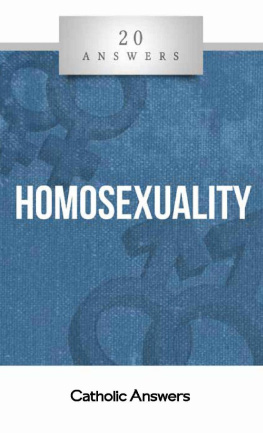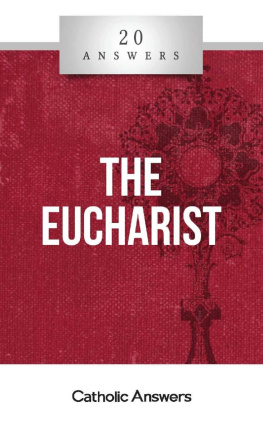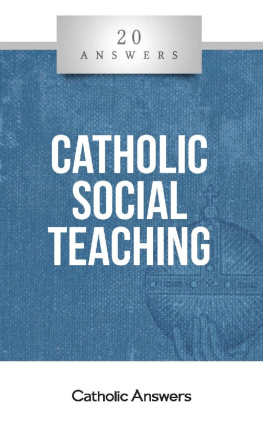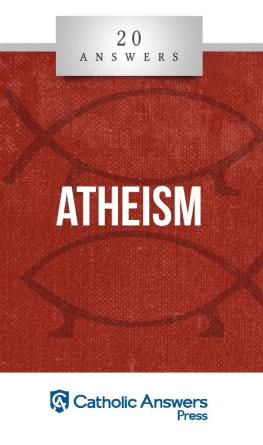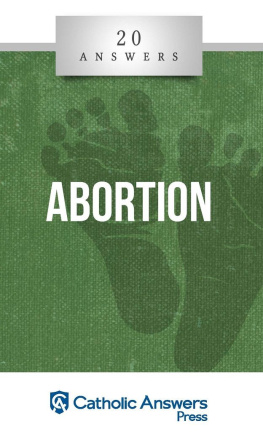Fr. Dcn. Daniel Dozier - 20 Answers: Eastern Catholicism (20 Answers Series from Catholic Answers Book 37)
Here you can read online Fr. Dcn. Daniel Dozier - 20 Answers: Eastern Catholicism (20 Answers Series from Catholic Answers Book 37) full text of the book (entire story) in english for free. Download pdf and epub, get meaning, cover and reviews about this ebook. year: 2020, publisher: Catholic Answers Press, genre: Religion. Description of the work, (preface) as well as reviews are available. Best literature library LitArk.com created for fans of good reading and offers a wide selection of genres:
Romance novel
Science fiction
Adventure
Detective
Science
History
Home and family
Prose
Art
Politics
Computer
Non-fiction
Religion
Business
Children
Humor
Choose a favorite category and find really read worthwhile books. Enjoy immersion in the world of imagination, feel the emotions of the characters or learn something new for yourself, make an fascinating discovery.

- Book:20 Answers: Eastern Catholicism (20 Answers Series from Catholic Answers Book 37)
- Author:
- Publisher:Catholic Answers Press
- Genre:
- Year:2020
- Rating:4 / 5
- Favourites:Add to favourites
- Your mark:
- 80
- 1
- 2
- 3
- 4
- 5
20 Answers: Eastern Catholicism (20 Answers Series from Catholic Answers Book 37): summary, description and annotation
We offer to read an annotation, description, summary or preface (depends on what the author of the book "20 Answers: Eastern Catholicism (20 Answers Series from Catholic Answers Book 37)" wrote himself). If you haven't found the necessary information about the book — write in the comments, we will try to find it.
20 Answers: Eastern Catholicism (20 Answers Series from Catholic Answers Book 37) — read online for free the complete book (whole text) full work
Below is the text of the book, divided by pages. System saving the place of the last page read, allows you to conveniently read the book "20 Answers: Eastern Catholicism (20 Answers Series from Catholic Answers Book 37)" online for free, without having to search again every time where you left off. Put a bookmark, and you can go to the page where you finished reading at any time.
Font size:
Interval:
Bookmark:

20 Answers
g
Eastern Catholicism
Fr. Dcn. Daniel Dozier

20 Answers: Eastern Catholicism
Fr. Dcn. Daniel Dozier
2019 Catholic Answers
All rights reserved. Except for quotations, no part of this book may be reproduced or transmitted in any form or by any means, electronic or mechanical, including photocopying, recording, uploading to the internet, or by any information storage and retrieval system, without written permission from the publisher.
Published by Catholic Answers, Inc.
2020 Gillespie Way
El Cajon, California 92020
1-888-291-8000 orders
619-387-0042 fax
Printed in the United States of America
978-1-68357-159-9
978-1-68357-160-5 Kindle
978-1-68357-161-2 ePub
Introduction
In the opening remarks of his 1995 encyclical letter, Orientale Lumen (Light of the East), Pope St. John Paul II wrote:
Since, in fact, we believe that the venerable and ancient tradition of the Eastern churches is an integral part of the heritage of Christs Church, the first need for Catholics is to be familiar with that tradition, so as to be nourished by it and to encourage the process of unity in the best way possible for each.
Our Eastern Catholic brothers and sisters are very conscious of being the living bearers of this tradition, together with our Orthodox brothers and sisters. The members of the Catholic Church of the Latin tradition must also be fully acquainted with this treasure and thus feel, with the pope, a passionate longing that the full manifestation of the Churchs catholicity be restored to the Church and to the world.
This booklet is my own small contribution in honor of the saintly popes desires that Latin Catholics in the West become familiar with their brothers and sisters of the Christian East, along with their rich treasures of liturgy, spirituality, theology, and disciplines. In this respect, they can come to appreciate more fully what it means to be Catholic.
For Western Catholics, this growth in understanding can cause discomfortas any kind of growth often does. My aim is to provide answers to common questions from a faithfully Eastern and fully Catholic perspective. I am an Eastern Catholic clergyman of the Byzantine Christian church and tradition and I am writing from within that perspective, although attempting as best I can to represent more broadly the Catholic East and its varying streams of tradition. And the history between the Latin church and those Eastern streams is not without conflict and controversy.
None of us is responsible for these historical divisions and issues. We have inherited a past we did not create, and yet we have an obligation to shape our present and our future through knowledge, charity, prayerful study, and encounter. In that way we might in fact realize the hope-filled aspirations of a pope whose own familial heritage was itself both Latin and Greek Catholic.
I hope that you find within these pages helpful answers as we walk together toward our true East: the New Jerusalem. May the light of Christ inspire us all to be united in truth and charity as faithful members of the holy Church of the nations.
1.What are the Eastern Catholic churches?
The best way to answer this question is to address each part of the phrase Eastern Catholic churches individually, and then summarize its whole meaning.
Church
The Catechism of the Catholic Church (CCC) says the word comes from the Greek ekkalein meaning to call out of. The Church is a convocation or assembly called out of the peoples or nations of the earth by God for a religious purpose (751). In the Old Testament, the people of Israel are described as the assembly of God (Hebrew, Qehal YHWH ), called and formed as Gods special people among the nations, and set apart by him through his covenant to know, love, serve, and worship him. In the New Covenant, Jesus speaks of founding a new assembly called the Church, established upon the rock of the apostle Peter, who confessed faith in him as the Messiah and Son of the living God (Matt. 16:18). Later, Jesus would commission, and empower the apostles (and by extension the whole Church), to make disciples of all nations (Matt. 28:25).
Following the descent of the Holy Spirit at Pentecost, Acts 2:42 makes reference to four aspects of the common life of the early Christians in this apostolic church:
Apostolic faith : They believed what the apostles taughtthe teaching they received from Jesus in their three years of discipleship.
Apostolic worship : They worshiped according to the practices of the apostles, engaging in a life of public liturgical prayer that included the breaking of the bread in the holy Eucharist.
Apostolic communion : They were associated with the communities established by the apostles of other Christian disciples.
Apostolic leadership : They were shepherded and served in their common life by ministers (bishops, presbyters, and deacons) who were ordained by the apostles through the laying-on of hands.
These four helped define the common life of Christs Church as it spread throughout the nations during the ministry of the apostles and their successors, the bishops. They would later also inform what we call the four marks of the Church in the creed of Nicea-Constantinople (A.D. 325) and help us to identify the nature of the Church as Catholic.
Catholic
This word, derived from the Greek words kata holos (according to the whole) is frequently translated universal. The Catechism says that this universality of the Church has two senses.
The first is that of fullness . The Church possesses the full means of salvation (truth and grace) since Christ as Lord and Savior is present in the Church, which is his Mystical Body, filled with the saving grace of the Holy Spirit since the day of Pentecost (CCC 830).
The second sense refers to the global nature of the Church, which also flows from the gift of the Holy Spirit. At Pentecost, the Church was empowered to fulfill the Great Commission of Christ (Matt. 28:1620) to plant the Church as the one vineyard of the Lord in all of the nations of the earth. It was to truly be the Christian assembly of all peoples, made up of both Jews and Gentiles.
So the Church established by Christ upon Peter and the apostles is truly Catholic in both its life (grace-filled fullness of Christian faith and worship) and mission (to all of the nations of the earth).
Eastern
As the apostles and their disciples fulfilled their divine and universal commission by planting the one Church of Christ throughout the world, they established local communities also known as churches (CCC 832) under the leadership of bishops, with their co-laborers the presbyters and deacons possessing apostolic faith, worship, communion, and leadership as seen in the early church in Jerusalem.
These churches were planted both within and outside of the confines of territories of imperial Rome, the city that became the point of reference for much of the civilized world at the time. Those territories in, around, and to the west of Rome were commonly referred to as being part of the West, while those territories to the east of Rome were referred to as part of the East. Apostolic churches in the one Church of Christ were then planted in both the western and eastern parts of the empire.
As these churches were established, they lived a truly Catholic and apostolic life rooted mostly in the Jewish diasporal culture of the synagogues outside Jerusalem. Over time, however, as more and more Gentiles converted, they developed distinctive ways of expressing and living the universal faith and life of the Church based upon the philosophical, linguistic, cultural, and artistic genius of the local and/or regional people who were converting. This is known as the process of gospel inculturation , and still takes place today in the Churchs missionary labors.
Font size:
Interval:
Bookmark:
Similar books «20 Answers: Eastern Catholicism (20 Answers Series from Catholic Answers Book 37)»
Look at similar books to 20 Answers: Eastern Catholicism (20 Answers Series from Catholic Answers Book 37). We have selected literature similar in name and meaning in the hope of providing readers with more options to find new, interesting, not yet read works.
Discussion, reviews of the book 20 Answers: Eastern Catholicism (20 Answers Series from Catholic Answers Book 37) and just readers' own opinions. Leave your comments, write what you think about the work, its meaning or the main characters. Specify what exactly you liked and what you didn't like, and why you think so.


